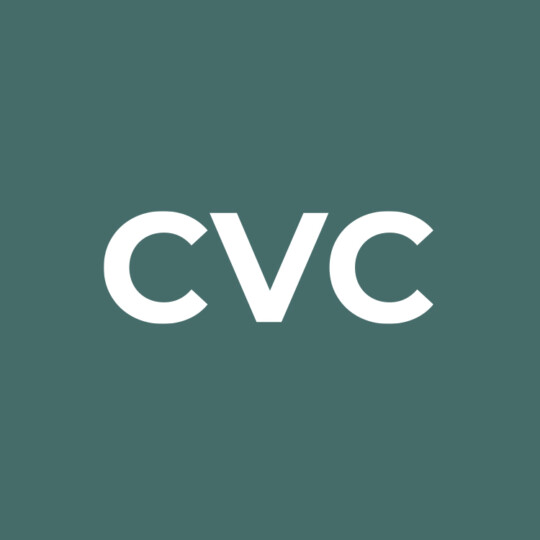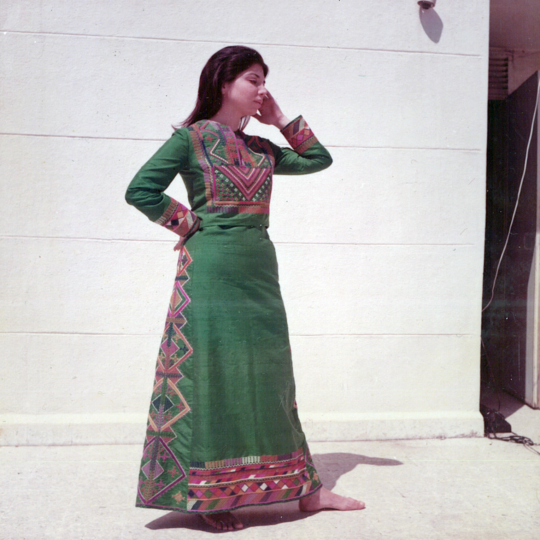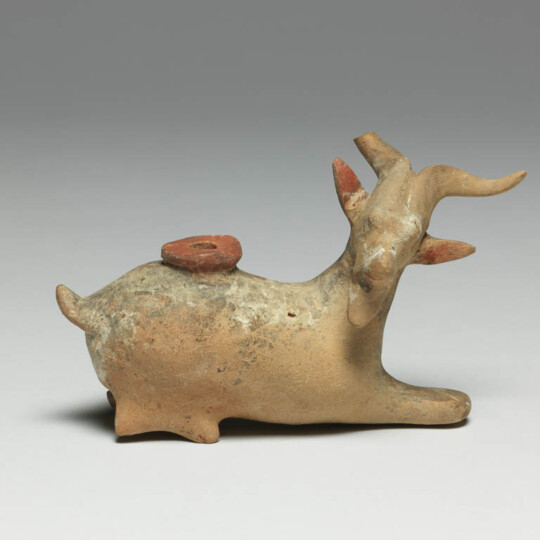- Visiting Research Fellowships (deadline Monday 3 June)
Cambridge Visual Culture invites applications for the 2024/25 programme of Visiting Research Fellowships in Visual Culture at the University of Cambridge. The programme aims to renew and catalyse the study of ‘the visual’ at Cambridge by bringing fresh voices and approaches to the University, and to extend visual culture studies into specialisms and fields which are under-represented in Cambridge. We encourage applications from practice-based researchers and those from non-traditional academic backgrounds, though please note that CVC is not in a position to organise studio space.
Successful applicants will engage with colleagues and students in the University of Cambridge in aspects of of visual culture studies. The call is open to scholars at all career stages working in all media and geographies, both historical and contemporary, as well as in curatorial studies and the shaping and reception of visual culture. We particularly welcome applications from researchers who will bring new perspectives to the research of visual culture in Cambridge.
During their residencies, awardees will be expected to further their research on visual culture, engage where appropriate with collections in Cambridge, develop links and explore collaborations with researchers in the University, lead a graduate seminar in a chosen academic department, and participate in a public event organised by CVC (a lecture, an “in-conversation” event, or similar).
These residential awards are for two weeks in the first instance and will be funded up to a limit of £2,000 to cover travel and accommodation (subsistence not included). Support will be provided to cover the cost of a standard visitor’s visa, if needed. Residencies should be taken up in term-time, either in Michaelmas Term (8 October 2024 – 6 December 2024), Lent Term (21 January 2025 – 21 March 2025), or Easter term (29 April 2025 – 20 June 2025). A case can be made for higher travel costs and additional living expenses if required.
CVC will consider proposals for a second research visit, of one week duration (with additional funding up to the value of £1,200), in the following year (2025/2026).
Awardees will have access to University Information Services, and access to Cambridge libraries during their residency and online for a 12-month period and a University of Cambridge email address (if required).
We will be hosting a town hall meeting to discuss these fellowships in greater detail. You will be able to meet the co-directors and coordinator of CVC and learn more about the programme. Further information, including a date, to be released presently.About CVC:
Cambridge Visual Culture (CVC) is a research network of colleagues from the Department of the History of Art, the Fitzwilliam Museum, Kettle’s Yard, and the wider research community of the School of Arts and Humanities. At present, it’s programme of activity is composed of four parts: the establishment of a digital presence through the development and launch of a dedicated CVC website, a programme of Visiting Fellows, and a series of events designed to elevate work on the visual at Cambridge. In this regard, we are both a platform for existing work and an incubator for new research. Core to our mission is the desire to diversify work on the visual, broaden the voices of our research community, and provide space for innovative work practices including participatory research, practice-based research, and knowledge exchange with the Cambridge community beyond the University.
CVC relaunched in 2022 as a distinctive and dynamic space for researching the visual / visual research, foregrounding the university’s collections and its array of display and exhibition opportunities. A unique collaboration between the Department of History of Art, the Fitzwilliam Museum, Kettle’s Yard, and the School of Arts and Humanities, CVC seeks to work with researchers and networks across Cambridge to explore how the visual is researched, and how research is expressed in visual culture. It aims to unlock synergies and promote fresh modes of engagement with the visual in Cambridge through a range of events from intimate “in conversation” seminars to public-facing lectures and project workshops. Our programme will be extended through a dynamic online presence knitting together activity across the University.
Visit our website to find out more about CVC.
The Visiting Research Fellowship programme is a core element of this initiative and seeks to revitalise the study of visual culture in Cambridge through new voices and new critical perspectives. The Fellowships support two-week residential awards in the first instance, with opportunities for a further week in the following year, with the intention of forging a more sustained engagement between CVC Visiting Research Fellows and Cambridge-based researchers and resources.
Over the past two years, we have been delighted to host ten Visiting Fellows, including:
23/24
Dr Abbas Akbari
Sana Ginwalla and Kerstin Hacker
Dr Che Gossett
Professor Brian Jacobson
Dr Anna Reid24/25
Sebastián Eduardo Dávila
Dr Elizabeth Emrich-Rougé
Dr Kimberley Foster
Professor Carol PayneThe projects of these scholars encapsulates work on British Surrealism, modern visual culture, Indian-Zambian art, the decolonisation of photography, abolitionist theory, thought, and blackness, Islamic lusterware, Arctic photography, syncretism in Latin America, practice research, and mid-20th century print culture. Outputs have included photographic exhibitions, films, lectures, books, practical workshops, and kiln building.
How to apply:
Applicants require a University of Cambridge advocate, who should be a member of faculty or curatorial/museum staff during the period of the fellowship. Visiting scholars will be hosted by CVC with a link to the relevant collection, centre, department or faculty (depending on the sponsor).
Applications should consist of:
– a proposal, not more than 2 pages of A4 text (with an additional 1 page of A4 with accompanying images if appropriate), including:
– outline of proposed research;
– outline of proposed outputs, including subject of a graduate seminar and proposal for a CVC public event;
– anticipated travel costs.and
– a Curriculum Vitae
– a letter of support from a University of Cambridge sponsor
– names and contact details of two refereesApplications should be sent by email with relevant attachments to cvc@aha.cam.ac.uk by 12pm (12 noon) on Monday 3 June 2024. Applications will be reviewed by the co-chairs of CVC, and approved by the CVC Steering Group.
CVC welcomes approaches from interested individuals to discuss potential applications. We can also help to connect potential applicants with relevant researchers in the University of Cambridge who may be interested to sponsor an application and encourage prospective applicants to consult our Directory in the first instance. For guidance, please contact Dr Alex Gushurst-Moore, alg82@cam.ac.uk.
CVC is generously supported by the following institutions. Please visit their websites to learn more about their research, programming, and scholars:
The Schools of Arts and Humanities
The Department of the History of Art
The Fitzwilliam Museum
Kettle’s Yard
- Archived - Creative Coordinator (deadline 9 October)
Cambridge Visual Culture is looking for postgraduate students with an interest in visual culture and a desire to learn new skills to join us this academic year.
Role
Creative CoordinatorTasks
– To generate content for the CVC social media platforms and website
– To support the CVC Coordinator in the ideation and development of events for the CVC programmeWhat’s Involved?
– You will create content for the social media platforms in the form of graphics/images and text that:
1. Helps to engage audiences (University of Cambridge and the public) with the work of CVC
2. Helps us to reach new audiences
3. Helps to advertise our programme of events– You will work closely with the CVC Coordinator to develop content that will be released over a set period (i.e. a week long takeover and/or a series to be released over a term).
– You will help to develop programming for CVC events. You will work closely with the CVC Coordinator to develop between one (a stand alone) and three (a series of) events that will form part of the CVC programme. You will support the development of content for the event listing, in booking venues, marketing the event, and the delivery of the event on the day.
Why Get Involved?
– Develop your marketing and communication skills
– Gain a new outlet for your creative content
– Work closely with CVC staff and its founding institutions: the Department of Art History, Fitzwilliam Museum, and Kettle’s Yard
– Become part of the CVC team and contribute a biography to our People pagesHours and Rate of Pay
CVC Creative Coordinators will be employed for a maximum of 10 hours across a term, at a rate of £11.45 per hour.Ideal Skills
– Some knowledge of image and graphic design, development, or photography
– Experience of writing content for social mediaIdeal Interests
– A general interest in visual culture
– Interest in and knowledge of social media trendsTo apply for the role, please send an expression of interest outlining how you meet the skills and interests listed above to cvc@aha.cam.ac.uk by Monday, 9 October.
Any questions about this role can be directed to the CVC Coordinator, Alex Gushurst-Moore (alg82@cam.ac.uk).
- Archived - Fellow Liaison (deadline 9 October)
Cambridge Visual Culture is looking for postgraduate students with an interest in visual culture and a desire to learn new skills to join us this academic year.
Role
Fellow LiaisonTasks
– To support the CVC Coordinator in welcoming the CVC Visiting Research Fellow(s) to Cambridge
– To be a point of contact for the CVC Visiting Research Fellow(s) during their two-week residency, with a particular focus on providing practical information about the University and the city of Cambridge
– To support the CVC Coordinator in the delivery of the CVC Visiting Research Fellows’ eventWhat’s Involved?
– Our Visiting Research Fellows are in residence for two weeks in their first year, and one week in the second year of their programme. Together with the CVC Coordinator, you will help the fellow(s) at induction by giving them insight into the student experience at Cambridge.– You will work closely with the CVC Coordinator to develop a public event, featuring the Visiting Fellow(s), that will form part of the CVC programme. You will support the development of content for the event listing, in booking venues, marketing the event, and the delivery of the event on the day. You will support the CVC Coordinator in drumming up interest for the Fellow’s events amongst students.
Why Get Involved?
– Learn more about Cambridge Visual Culture
– Be close to the cutting edge of visual culture research
– Grow your networks in and beyond Cambridge
– Become part of the CVC team and contribute a biography to our People pagesHours and Rate of Pay
CVC Fellow Liaisons will be employed for a maximum of 10 hours across a year, at a rate of £11.45 per hour.Ideal Skills
– PhD student working on research relating to the visual
– Friendly, gregarious
– Knowledge of city of Cambridge
– Knowledge of the University of Cambridge institutionsIdeal Interests
– A general interest in visual culture
– ResearchTo apply for the role, please send an expression of interest outlining how you meet the skills and interests listed above to cvc@aha.cam.ac.uk by Monday, 9 October.
Any questions about this role can be directed to the CVC Coordinator, Alex Gushurst-Moore (alg82@cam.ac.uk).
- Archived - Lustre-Painted Pottery Kiln Build Volunteer (deadline 27 October)
The Fitzwilliam Museum is excited to be working with renown ceramicist and scholar Dr Abbas Akbari to create a traditional brick kiln on the lawn of the museum and fire it to make lustre ceramics. This series of events is part of a research project that examines the history and technology of medieval Iranian lusterware.
We are keen to work with a team of volunteers who can help us build the kiln, assist with the firing and communicate with members of the public about what we are doing.
This project will run in November on the following dates:
Saturday 11th 12:00 – 16:30: Kiln building at the Fitz
Tuesday 14th 10:30 – 14:30: First firing
Wednesday 15th 14:00 – 16:00: Unload kiln
Thursday 16th 10:30 – 14:30: Second firing
Friday 17th 11:00 – 13:00: Unload kiln. Dismantle from 14:00 – 16:00 (not public)Volunteer tasks:
Volunteers will help to build the kiln, assist with the firing and talk to the public about the activities.What you will gain from this role:
• Practical and hands-on experience of firing ceramics
• Participation in a unique and exciting project
• Satisfaction of giving back
• Gain cultural sector contacts within a supportive environmentSkills expectations:
Volunteers from all backgrounds and experience are welcome. Volunteers should be able to comfortably lift and carry 11 lbs (5 kgs) in weight.Potential involvement:
You can choose to join just one session or several. If interested, please send an expression of interest form (linked below) to Niki Hughes (nh455@cam.ac.uk) by 17.00 on the 27th of October. We will hold an Information and Selection Session for those interested on the 1st of November at 16.00.Location:
The Fitzwilliam Museum, Trumpington Street, Cambridge. CB2 1RBResponsible to:
Flavia Ravaioli (fr306@cam.ac.uk)Training and support:
Full training and support and an active risk assessment will be provided for this role within the department.Legal check requirements for this role:
As this is considered a “micro-volunteering” role, no check will be required. Volunteers will be supervised at all times.Health and safety responsibilities:
You will be responsible for your own health and safety and that of others with whom you volunteer, by reporting all potential and actual health and safety matters including accidents using the correct procedures.Appropriate clothing should be worn, including a full-length sleeved top of a heavy fabric that is non-flammable and heavy-duty non-flammable trousers. Coveralls should not be worn as these can be hard to remove at speed. A heavy denim/cotton work jacket and jeans would be ideal. Avoid synthetic fibres that may burn/melt.
Closing date:
5 pm on 27th OctoberAbout the Fitzwilliam Museum
About the University of Cambridge Museums





